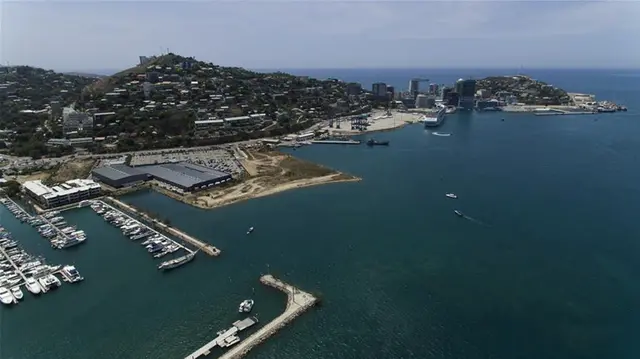This week is witnessing a flurry of U.S. diplomatic activities in the Pacific region as U.S. Secretary of State Antony Blinken and Secretary of Defense Lloyd Austin make their way to Tonga and Papua New Guinea, respectively.
The opening of a new diplomatic mission in Tonga and the discussions surrounding the Defense Cooperation Agreement in Port Moresby reflect a broader recalibration of U.S. priorities in the region. The Pacific has become a focal point of geopolitical competition, and Washington's diplomatic activism is indicative of its eagerness to counter China's growing influence.
On July 26, Blinken is scheduled to inaugurate a new U.S. embassy in Nuku'alofa, Tonga, according to the U.S. Department of State. Alongside this, he will also visit Wellington and hold discussions with New Zealand officials. Subsequently, Blinken will journey to Australia for meetings with Austin and their Australian counterparts.
While Washington might insist that its actions are not driven by strategic intent to muffle China's clout, one cannot ignore the palpable shift in tone and focus. The inauguration of a new diplomatic mission in Tonga and the contentious Defense Cooperation Agreement discussions in Port Moresby demonstrate a clear attempt to counterbalance China's growing influence in the region. Reportedly, Washington is also maintaining communication with Vanuatu and Kiribati regarding a proposal to establish embassies in their respective countries.
Blinken's travel to the Pacific region was announced a week after the U.S. Department of State informed the Congress that it plans a massive increase in diplomatic personnel and spending for facilities at new U.S. embassies in the Pacific islands. And China's increasing "assertiveness" was used as pretext by the U.S. Department of State to justify this boost in the U.S. presence in the Pacific.
Media reports indicate that the U.S. Department of State contends China already maintains permanent diplomatic facilities in eight out of the 12 Pacific island nations acknowledged by the United States. Consequently, the Department asserts that the United States must strive to catch up in the region.
There is no doubt that the United States is working on a broader strategy to counter China's growing influence in the region. Though the American media is claiming that the opening of new embassies there is based on a genuine need for consular services, the fact is that it is simply a politically motivated action designed to disrupt China's efforts in the Pacific and to further its own agenda in the region.
The crucial question at hand is whether this move will genuinely achieve its intended goals or instead lead to increased tensions and instability in the region. History is rife with instances where Washington's entry into areas already engaged in developmental work with China has sparked unrest and unease.
The U.S.'s growing desire to counter China's presence in the area has become more aggressive, yet this approach, driven primarily by self-interest, may risk backfiring and heighten tensions in an otherwise peaceful region. Prudent diplomacy is essential to avoid inadvertently exacerbating existing geopolitical dynamics.
The United States is grappling with a palpable sense of strategic anxiety due to China's successful engagement in the South Pacific region. The island nations have embraced China's mutually beneficial cooperation, prompting Washington to respond with a series of high-profile diplomatic maneuvers, including the establishment of new embassies and rapid tours throughout the region.
For three decades, the South Pacific remained on the periphery of U.S. geopolitical concerns. Yet, this changed drastically when China emerged as the region's largest trading partner and a significant investment player. However, the U.S.'s renewed interest in forging ties with South Pacific nations seems to be inspired more by utilitarian concerns than a genuine desire to help them. Critics argue that the U.S. is using these countries as a "tool" in its efforts to contain China, rather than working towards shared prosperity and stability in the region.
U.S. President Joe Biden plans to host a second Pacific island countries summit in September. But the palpable irony is that the Pacific island countries are also acutely aware that Washington views them merely as pawns in its geopolitical competition with China, prioritizing its "America First" agenda above all else.
(CGTN)
 简体中文
简体中文

